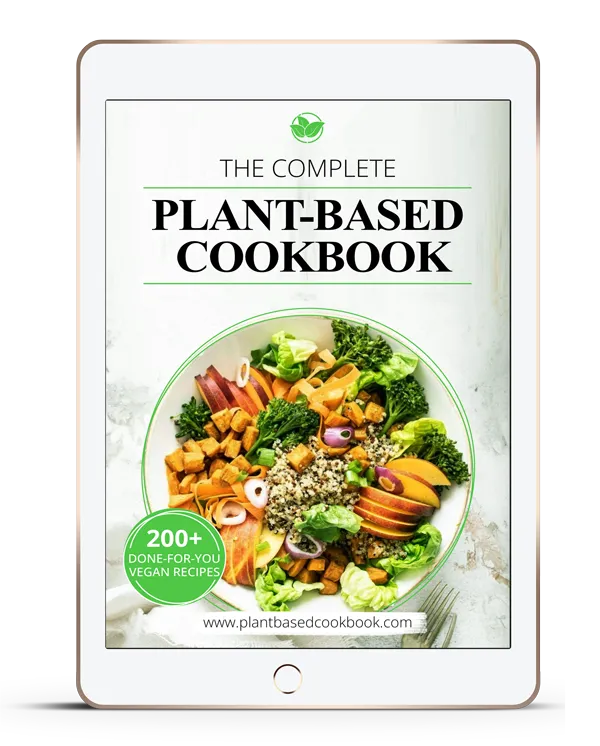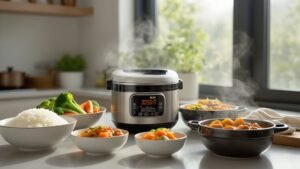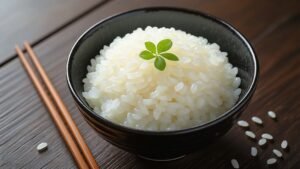Are you tired of losing valuable nutrients in your cooked grains?
Well, don’t worry because I have the answer to your problems! In this article we are going to discover the secret to unlocking maximum nutrient retention with rice cooker-cooked grains.
In a moment, we will delve into the science behind nutrient preservation, explore key factors that affect it, and compare the nutrient retention in cooker-cooked grains.
Plus, we’ll share valuable tips on how to maximize nutrient retention in rice cookers.
So, get ready to reap the health benefits of cooking grains in your rice cooker.
Table of Contents
ToggleThe Science Behind Nutrient Retention
When you cook grains in a cooker, such as a rice cooker or pressure cooker, there are certain factors at play that affect the retention of nutrients.
One of the key factors is the cooking time. The longer the grains are cooked, the more nutrients they tend to lose. This is because heat can break down certain vitamins and minerals.
Another important factor is the cooking method.
The cooker’s sealed environment helps retain moisture, which in turn helps to preserve the nutrients in the grains. Also, the high temperature in the cooker can help to break down the starches in the grains, making them easier to digest and increasing the bio-availability of nutrients.
Key Factors Affecting Nutrient Preservation
As discussed above, when cooking grains in a cooker, there are three key factors that affect the preservation of nutrients.
First, the cooking time plays a crucial role. Overcooking can lead to the loss of essential nutrients, such as vitamins and minerals. It’s important to follow the recommended cooking time provided by the cooker’s manufacturer to ensure optimal nutrient retention.
Second, the amount of water used during cooking is significant. Using excessive water can result in leaching out of nutrients, while using too little water can lead to nutrient loss due to evaporation. Finding the right balance is essential for nutrient preservation.
Finally, the cooking temperature must be considered. High temperatures can degrade certain nutrients, so it’s advisable to cook grains at a moderate heat setting to retain their nutritional value.
Comparing Nutrient Retention in Cooker-Cooked Grains

Not all cooking methods are created equal when it comes to preserving the nutritional content of grains. By comparing the nutrient retention of cooker-cooked grains to other cooking methods, such as boiling or steaming, you can make an informed decision about which method is best for preserving the essential vitamins and minerals in your grains.
Studies have shown that cooker-cooked grains retain more nutrients compared to other methods. This is due to the sealed environment created by the cooker, which prevents the loss of water-soluble nutrients through evaporation.
Additionally, the shorter cooking time in a cooker helps to minimize nutrient degradation. Therefore, by comparing nutrient retention in cooker-cooked grains to other methods, you can make a conscious choice to maximize the nutritional value of your meals.
Tips for Maximizing Nutrient Retention in Rice Cookers
To maximize nutrient retention in rice cookers, consider these tips:
- Rinse the rice before cooking: Rinsing removes excess starch from the rice grains, which can help improve nutrient retention during cooking.
- Use the correct amount of water: It’s important to use the recommended water-to-rice ratio to ensure that the rice is cooked evenly and retains its nutrients. Too much water can cause nutrient loss, while too little water can result in undercooked rice.
- Avoid lifting the lid while cooking: Opening the lid during cooking releases steam and heat, which can lead to nutrient loss. It’s best to resist the temptation to check on the rice and let it cook undisturbed until it’s done.
Health Benefits of Using Cooker-Cooked Grains
Using a rice cooker to cook grains offers numerous health benefits.

Firstly, cooking grains in a rice cooker helps to retain more nutrients compared to other cooking methods. The closed environment of the rice cooker traps steam, allowing the grains to cook in their own natural juices. This helps to preserve the vitamins, minerals, and antioxidants present in the grains, ensuring that you get the maximum nutritional value from your meal.
Additionally, using a rice cooker eliminates the need for added oils or fats, making it a healthier cooking option. By cooking grains in a rice cooker, you can enjoy a nutritious and delicious meal without compromising on taste or health.
Frequently Asked Questions
How Long Should I Cook Grains in a Rice Cooker for Optimal Nutrient Retention?
You should cook grains in a rice cooker for optimal nutrient retention for around 20-30 minutes. This allows the grains to be fully cooked while preserving their nutritional value.
Can I Use a Rice Cooker to Cook Other Types of Grains Besides Rice?
Yes, you can use a rice cooker to cook other types of grains besides rice. Just follow the instructions for each specific grain and enjoy the convenience of using your rice cooker for a variety of nutritious meals.
Are There Any Specific Cooking Techniques or Methods That Can Help Enhance Nutrient Retention in Cooker-Cooked Grains?
Sure, there are some simple strategies you can try to boost nutrient retention in your cooker-cooked grains. Soak them beforehand, use less water, and opt for shorter cooking times.
Can Using a Rice Cooker to Cook Grains Help Me Save Time and Effort in the Kitchen?
Using a rice cooker to cook grains can definitely save you time and effort in the kitchen. It’s a convenient way to cook grains without having to constantly monitor the stove.
Are There Any Specific Types or Brands of Rice Cookers That Are Better for Nutrient Preservation Than Others?
If you’re wondering which types or brands of rice cookers are better for nutrient preservation, it’s important to consider factors like temperature control and cooking time. Some models may have features that help retain more nutrients.
Conclusion
In conclusion, using a rice cooker to cook grains not only saves time and effort, but also helps to retain essential nutrients. Studies have shown that cooker-cooked grains have higher nutrient retention compared to other cooking methods.
Just like a treasure chest, the rice cooker locks in the precious nutrients, ensuring that you and your family receive maximum health benefits from your meals.
So, unlock the potential of your grains and enjoy the delicious and nutritious meals cooked in your rice cooker.
Last update on 2025-10-09 / Affiliate links / Images from Amazon Product Advertising API






